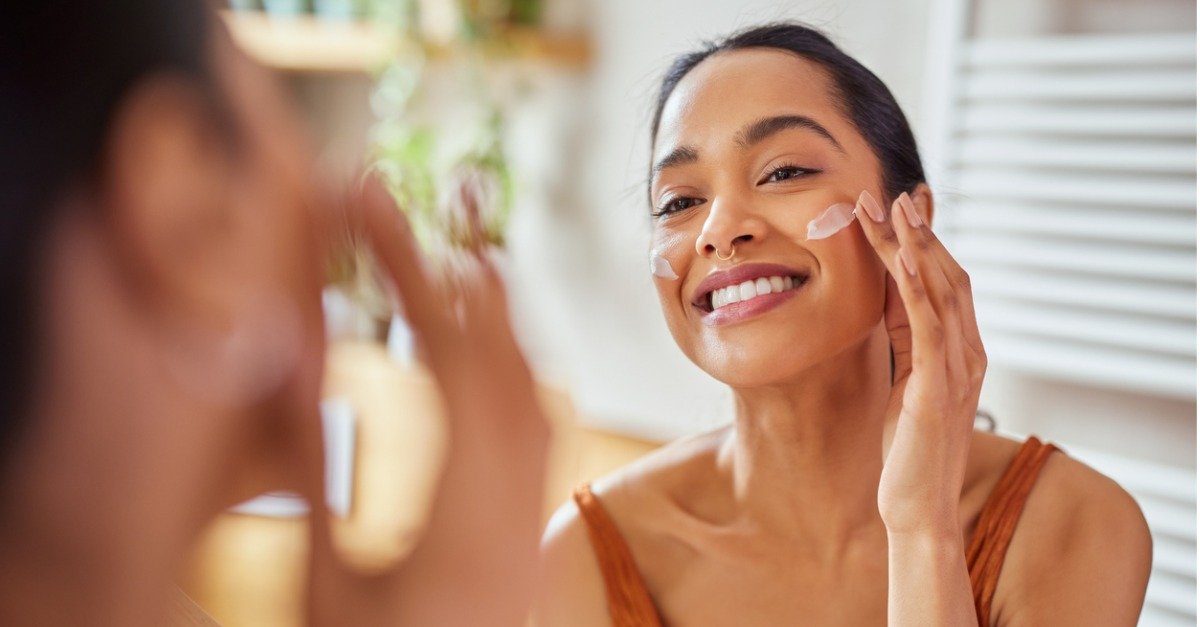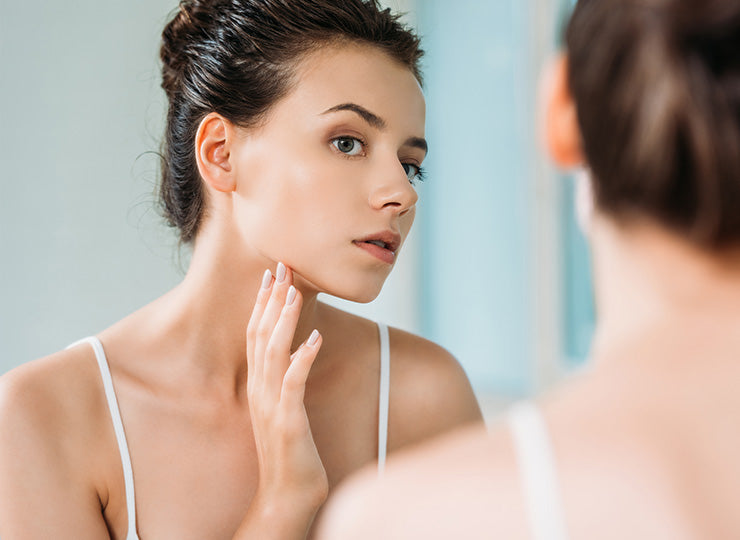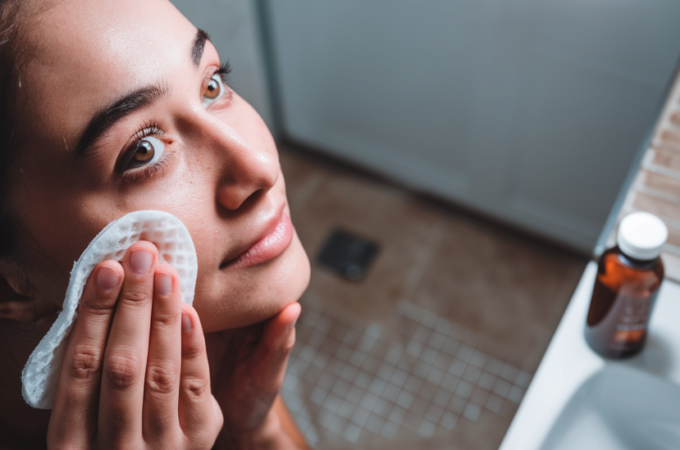
How to Build the Perfect Skincare Routine for Mature Skin
Our skin naturally changes as we age, often losing some elasticity, moisture, and firmness. These changes can bring about signs of aging, like fine lines, dark spots, and wrinkles. The good news is that a well-thought-out skincare routine can help keep your skin looking vibrant and healthy.
Here, you’ll find a guide to building a mature skincare routine that addresses the unique needs of aging skin, focusing on hydration, protection, and rejuvenation and helps you achieve glowing skin with these timeless anti aging skincare essentials. With the right products and consistency, you can enjoy a glowing, resilient complexion at any stage of life.
Understanding the Needs of Mature Skin
Mature skin has particular needs. The standard synthesis of collagen and lipids diminishing with aging causes dryness and a thinner skin barrier. The skin could grow more sensitive and agitated.
For this reason, skincare for aging skin mainly aims at hydration, nourishment, and protection. An excellent anti-aging skin care program can help maintain a young look and enhance skin health by concentrating on these areas.

Step 1: Gentle Cleansing
Any skincare routine starts with cleaning, but skincare for older skin requires a milder approach.
- Choose a Mild, Hydrating Cleanser
Choose a cleanser meant for delicate or older skin. These are often free of strong chemicals and fragrances that could drain the skin’s natural oils. Glycerin and ceramides are two great components for hydration in skincare for older skin.
- Avoid Over-Washing
Limit your face cleaning to twice daily, once in the morning and once before bed; too many washes could dry your skin. Use lukewarm water, as hot water may damage elderly skin.
- Pat Dry, Don’t Rub
After washing, gently pat your face dry with a soft towel. Avoid rubbing, as this might tug at the skin and eventually show little wrinkles.
Step 2: Exfoliate (But Not Too Often)
Exfoliating dead skin cells helps other products absorb more effectively and boost cell turnover. However, exfoliating should be done gently since aged skin might be sensitive.
- Choose a Gentle Exfoliator
Chemical exfoliants such as alpha hydroxy acids (AHAs) and beta hydroxy acids (BHAs) can be great for aged skin. They exfoliate without resorting to the aggressive scouring of physical exfoliants. Lactic and glycolic acids are excellent alternatives for improving skin texture and brightness.
- Limit Exfoliation to 1–2 Times a Week
Overindulging in exfoliating could irritate and strip the skin. Exfoliate once or twice a week to maintain glowing, smooth skin without oversensitivity.
Step 3: Hydrating Toner
A moisturizing toner is ideal for an anti-aging skincare routine because it balances the face’s pH and adds another layer of moisture.
- Opt for Alcohol-Free Formulas
Alcohol can induce dryness in more mature skin types. Look for toners with aloe vera, which soothes and hydrates, or hyaluronic acid, which holds skin moisture while you plan mature skin care.
- Apply Gently
Gently dab toner on your face using your palms or a cotton pad. This will increase the product’s absorption and prepare the skin for the next operation.
Step 4: Anti-Aging Serum
Solid and active components in concentrated preparations help serums solve specific skin problems. An anti-aging skin care serum is vital for older skin.
- Look for Vitamin C and Retinol
Retinol promotes the manufacture of collagen, which can help minimize fine wrinkles, while vitamin C is an antioxidant that brightens skin and guards it from environmental damage. Over time, both components can gradually help the skin become firmer and smoother.
- Apply Only a Small Amount
Serums are rather concentrated, so just a few drops are needed. Apply the product to your face and neck, leaving it to absorb completely before proceeding to the next stage.
- Introduce Retinol Gradually
If you have never taken retinol, start once or twice weekly to avoid aggravation. Your skin’s tolerance will determine how often you should use it; you can progressively boost this frequency.
Step 5: Moisturize Your Skin
Maintaining skin hydration and offering a barrier to guard it depends on moisturizing.
- Choose a Rich, Nourishing Moisturizer
A thicker moisturizer grounded on cream works better for aged skin. Look for components that improve the skin’s barrier and assist in moisture retention, such as hyaluronic acid, ceramides, and peptides.
- Don’t Forget the Neck and Chest
It’s not just the face that shows signs of aging; the neck and chest are also affected. Be sure to apply moisturizer to these areas to keep the skin smooth, firm, and well-hydrated.
- Consider a Night Cream
For extra moisture while you sleep, use a night cream with anti-aging skincare ingredients like peptides or collagen. Night creams generally enhance the body’s natural healing process and are richer than day creams.
Step 6: Sun Protection (SPF)
No advanced skincare routine for mature skin is complete without sunscreen. Shielding your skin from UV light is essential for stopping further aging.
- Use a Broad-Spectrum SPF 30 or Higher
Choose a sunscreen with a minimum SPF of 30 that protects against UVB and UVA rays. This will reduce the probability of dark spots, fine wrinkles, and other sun damage symptoms.
- Apply Daily, Even Indoors
Sunscreen spans more than just sunny days. Apply it daily, even if you’re staying indoors; UV light can pass through windows.
- Reapply as Needed
If you’ll be outside, reapply every two hours to guarantee protection. Consider a lightweight, moistening sunscreen that accentuates makeup.
Step 7: Eye Cream
The sensitive skin around the eyes often shows the first signs of aging. An eye cream will help to keep this area smooth and moist.
- Choose an Eye Cream with Peptides or Hyaluronic Acid
Peptides can help tighten the skin, while hyaluronic acid moistens it. If you have dark circles or puffiness beneath your eyes, look for an eye lotion with caffeine to reduce edema.
- Apply Gently with Your Ring Finger
With your ring finger, gently pat the product around the eye area. Pulling at the skin might cause wrinkles.

Additional Tips for Healthy, Glowing, Mature Skin
You can consider some additional tips for healthy, glowing, mature skin.
- Stay Hydrated
Drinking lots of water helps keep skin looking full and fresh by keeping it hydrated from the inside out.
- Consider Adding Supplements
Foods high in collagen, vitamin C, and omega 3 fatty acids improve skin condition. See a healthcare provider to see whether supplements would be suitable for you.
- Prioritize Sleep
Try to get seven to nine hours of decent sleep every night to allow your skin time to recover. Sleep on your back to avoid your face rubbing the pillow, which can cause wrinkles.
- Embrace a Balanced Diet
A diet heavy in lean proteins, fruits, and vegetables supports skin health. Foods high in antioxidants, including berries and leafy greens, fight the free radicals causing aging.
The Bottom Line
Creating a skincare routine for mature skin is relatively easy. Emphasizing mild washing, adequate hydration, and sun protection will help you meet the particular needs of aging skin and preserve its young radiance. Following this regimen, which supports the health of your skin and aids in stopping additional aging, can give you beautiful skin at any age.
Whether you are just starting your skincare journey or wish to upgrade your present one, these steps can help you design a skincare routine for mature skin that improves your skin.Want to keep your skin glowing and healthy as you age? Visit Masque Skin a wellness blog for mature skin to explore tips, routines, and products crafted to meet the unique needs of mature skin. Your journey to radiant skin starts here!




